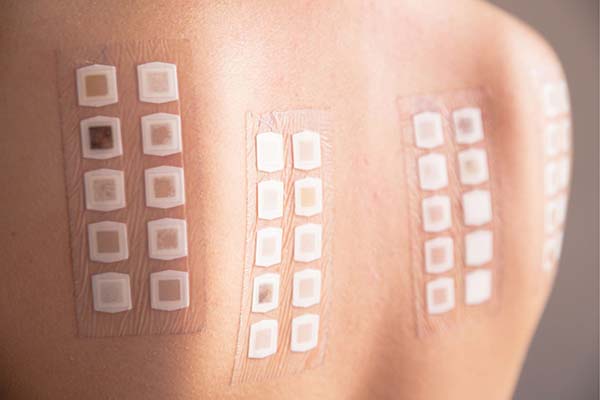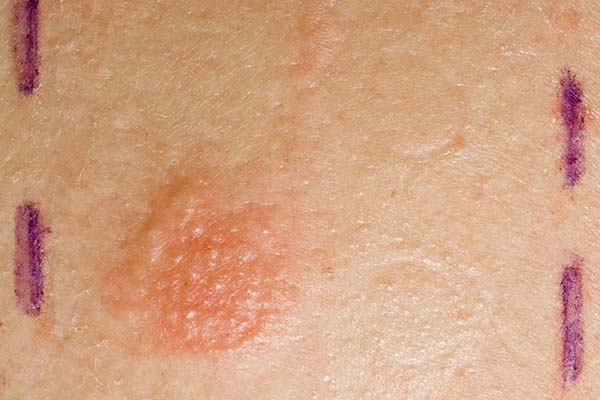Could your IBS symptoms be caused by a type of food allergy?
Many people suffering from IBS experience frustration when trying to determine the cause of their symptoms. Even when it seems related to foods, traditional testing to food allergies via skin prick tests and lab work often yield negative results. That’s because these tests search for “Type 1” allergies, such as the ones that cause hay fever, asthma, and anaphylaxis to foods like peanuts and shellfish. Dr. Michael Stierstorfer is the first ever to look at the role of a completely different type of food allergy in IBS called a “Type 4” allergy. The results of his research demonstrate that such allergies are often responsible for IBS symptoms. It shows that inflammation occurs along the lining of the intestine as ingested foods pass through, resulting in allergic contact enteritis (ACE). So, this calls for a different type of testing.

How can you test for this type of food allergy?
Patch testing is a type of non-invasive dermatologic procedure that evaluates for foods that may be causing IBS. Patch tests have traditionally been used to evaluate rashes for allergic contact dermatitis. The testing can determine which foods may be causing ACE resulting in your IBS type symptoms.
What are my chances of finding a food or foods causing my symptoms?
In Dr. Stierstorfer’s clinical study, Food Patch Testing for Irritable Bowel Syndrome published in the March 2013 Journal of the American Academy of Dermatology, they helped over 27% of patients tested to 40 foods. Current testing offers a wider variety of foods, and about 30% improve with another 20% who are essentially cured.
Will my insurance cover the cost?
Our office participates with many large health insurance plans in the region. We will submit the claims for you, however this does not guarantee coverage. Unpaid balances not covered by your insurance company are your responsibility.
What is involved with the patch testing?
A wide variety of foods and food additives are processed for patch testing.
The testing involves three visits:
Day 1: Food allergens are applied to your upper back and left in place for 48 hours.

Day 3: Patches are removed and your skin is examined for allergic reactions. Small red marks identify specific food allergies.

Day 4 or 5: Your skin is examined a second time for late-developing reactions.
If allergies are found, you are instructed to avoid eating the food(s) causing the skin reaction(s) for one month. If the IBS symptoms improved or disappear, lifelong avoidance of the responsible food is advised.
Chestnut Hill Allergy & Asthma Associates is a trusted provider of comprehensive allergy, asthma, and immunology care in the Philadelphia area. Their team of board-certified allergists now offers patch testing for IBS (Irritable Bowel Syndrome) to help identify food sensitivities and delayed allergic reactions that may contribute to gastrointestinal symptoms. This specialized testing provides valuable insights into potential triggers, allowing patients to receive personalized treatment plans designed to reduce discomfort, improve digestion, and enhance overall quality of life.
With convenient locations in Wyndmoor and Center City Philadelphia, Chestnut Hill Allergy & Asthma Associates serves surrounding communities including Lafayette Hill, Roxborough, Elkins Park, Germantown, Manayunk, Jenkintown, Plymouth Meeting, Conshohocken, Gulph Mills, and the Main Line area, encompassing Radnor, Wayne, Bryn Mawr, Ardmore, Bala Cynwyd, Narberth, Fort Washington, Ambler, Spring House, Willow Grove, and Abington.
